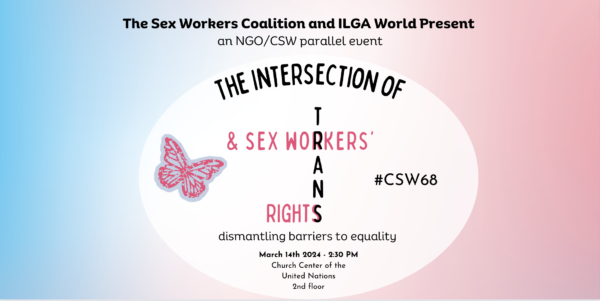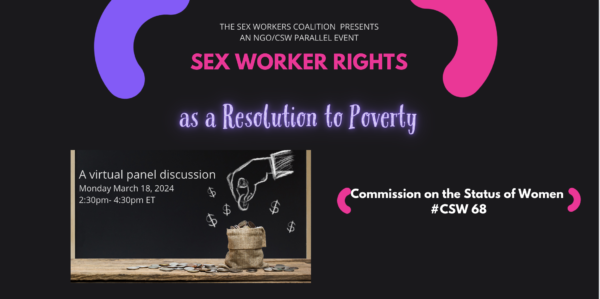Spoken Word/Poetry/Song Competition for International Whores Day 2024
Entries are due by 11.59 pm ET on May 30, 2024
This year’s theme will be in celebration of luminary trans sex worker activist, actress, writer, and performer Cecilia Gentili who we lost on February 6th. Cecilia, an Argentine-American, was a fierce advocate for the rights of sex workers and the end of stigma around HIV/AIDS. Her beautiful life was celebrated by over a thousand people at the historic St. Patrick’s Cathedral on Feb. 15th. The Mourners loudly identified as sex workers and stormed a sanctuary to hold up the humanity of Whore Mother Cecilia. This celebration of her is perfectly reflective of the original International Whore’s Day in France in 1975.

If you are a sex worker/person in the sex trade and have a connection to New Jersey (live here or work here, or come from here, or have good friends here, or similar), then contribute a poem or music to the International Whores Day podcast competition by May 24, 2024. We encourage everyone to be inspired by Cecilia’s example in what is contributed, but contributions do not need to be directly about her life per se. The prompt is “dream big, just like she did.” New Jersey Red Umbrella Alliance (NJRUA) will select several of the pieces to read for our International Whores Day podcast (produced in collaboration with Moral High Ground Productions). Contributors maintain the copyright of their art and will provide permission for it to be shared on our podcast. All selected entrants will receive compensation for their participation.
Members of NJRUA will judge the competition. The NJRUA poetry podcast will be recorded/edited by PJ Starr and N’Jaila Rhee and released on SoundCloud on June 1, 2024. The podcast builds on a tradition begun by Robyn Few, who read a poem created by her friends for International Sex Worker Rights Day in 2010. Check out our previous podcasts here:
International Sex Worker’s Day 2022
Contribute your poem, words, lyrics, songs, music, etc to newjerseyrua@gmail.com by May 24, 2024, by 11.59 pm Eastern. If you would like to record a reading of your poem for consideration, we can receive the recording via email or any other file transfer service you would like to use. We can also assign someone to read out submissions for the podcast if you prefer to send in text only. If poetry does not interest you, you can send us original music for consideration for the podcast, lend your voice to reading a poem, or donate to our cause. All are welcome. You may contribute anonymously (i.e. we don’t have to read any name on the podcast) or provide us with a name and short bio if you wish. Also please indicate that we have your permission to use your art/poem/words/song for our podcast.
Good luck!


